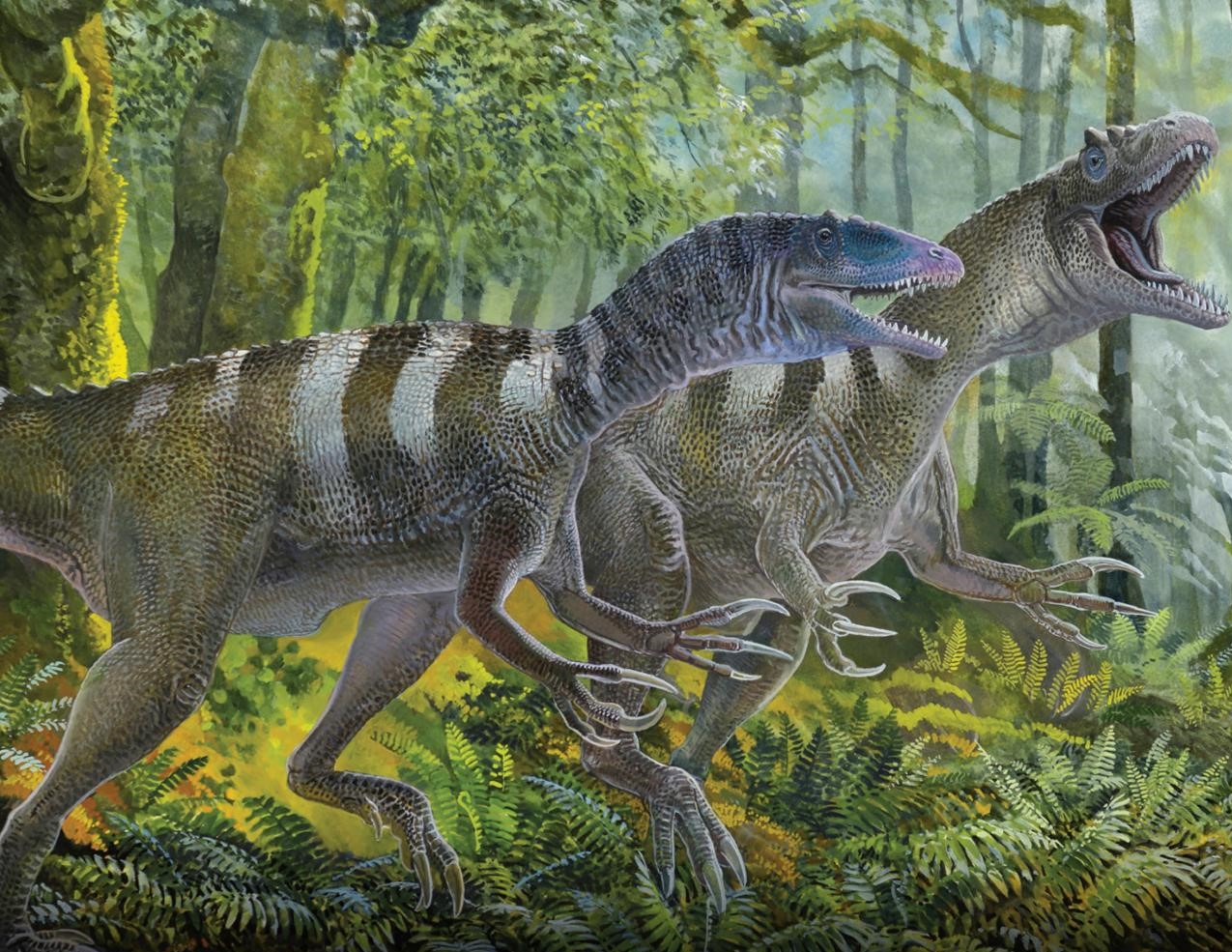
The extinction of species as diverse as flesh-eating kangaroos, tree-climbing crocodiles and gigantic venomous lizards are just a few examples of the extraordinary prehistoric history of Australia, New Zealand, New Guinea and surrounding islands.
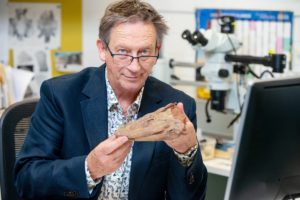
A major new award-winning scientific summary of Australasia’s prehistoric animals highlights multiple climate crises which led to species extinctions over the past 300 million years, says Flinders University Professor John Long, one of four leading palaeontologists who compiled the Prehistoric Australasia.
Featuring 100 colourful panoramas of the megafauna and flora by palaeoartist Peter Schouten, the book explores the nature and timing of extinction events in the Southern Hemisphere.
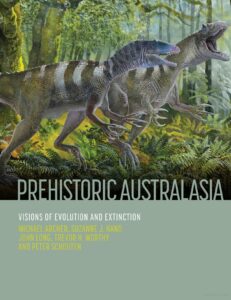 “The book assesses how we can use the fossil record to help save today’s critically endangered species, and even whether some of these losses might be reverse,” says Professor Long, from the Palaeontology Research Laboratory at the Flinders University College of Science and Engineering.
“The book assesses how we can use the fossil record to help save today’s critically endangered species, and even whether some of these losses might be reverse,” says Professor Long, from the Palaeontology Research Laboratory at the Flinders University College of Science and Engineering.
“This major resource can help add to the public understanding of still-emerging scientific knowledge about our ancient history, particularly since the Australian continent formed over 50 million years ago.
“It gives vital insights into the diversity of taxa and individual species, and what challenges they face – perhaps more now than ever in our history.”
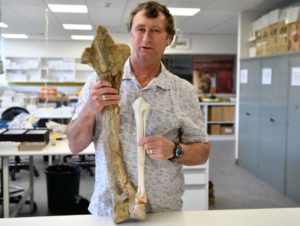
The life work, in the field and the lab, by Flinders University Professor Long and colleague Associate Professor Trevor Worthy covers chapters respectively on the internationally significant Gogo fossil site in Western Australia, and the remarkable diversity of New Zealand’s early fauna evolution.
They joined illustrator Peter Schouten and UNSW Sydney Professor Michael Archer and Emeritus Professor Suzanne Hand in releasing the latest volume called Prehistoric Australasia: Visions of Evolution and Extinction (CSIRO Publishing), which this week won the prestigious Royal Zoological Society of NSW Whitley Medal at the annual award presentations at the Australian Museum, Sydney.
Flinders University science and natural history writer Dr Danielle Clode received a second commendation this year, for her new book called Koala: A Life in Trees (Black Inc), following a previous Whitley book award for Prehistoric Marine Life of Australia’s Inland Sea (Museum Victoria Publishing).
“Despite being one of the most well-studied of Australian mammals, our understanding and management of koalas is constrained by their diversity of behaviour and abundance across their wide range,” says Dr Clode.
“They behave so differently across different habitats and states and they really need a broad-scale overview to synthesise the data and inform national management strategies.
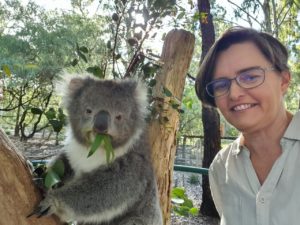
“Both past extinctions and koalas are highly contentious and quite politicised topics of great general interest with new research and discoveries emerging all the time that radically change our perspectives on the crises we face with climate change and extinction.”
The Whitley Awards for zoological literature are presented for outstanding publications that profile the unique wildlife of the Australasian region. As well as the Whitley Medal for Best Book on the Natural History of Australian Animals, Professors Archer and Hand received special commendation for outstanding contributions towards the promotion of the Australasian fossil fauna and its conservation.
The new picture book Prehistoric Australasia can be purchased online

